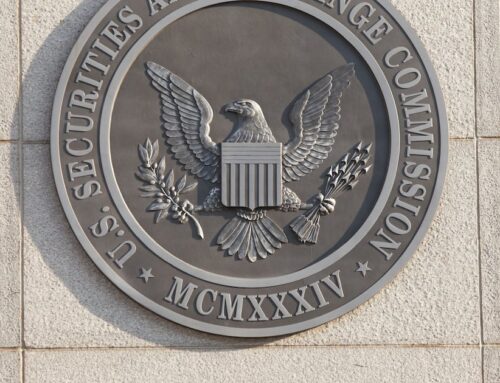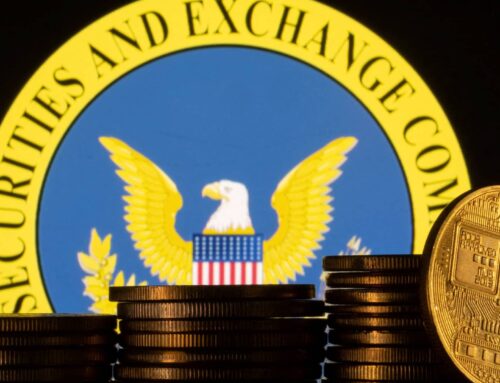Jamie Dimon’s time as JPMorgan CEO is winding down. Investors are saying ‘do not go.’
May 16, 2025
JPMorgan Chase (JPM) CEO Jamie Dimon’s time as top boss is winding down when his stature on Wall Street and in the nation’s capital is arguably at an all-time high.
Investors, as a result, may not be ready for the 69-year-old executive to exit the stage just yet.
They are saying, “Jamie Dimon, do not go!” Wells Fargo analyst Mike Mayo, who has covered JPMorgan for decades, told Yahoo Finance.
He has “more public clout than he’s ever had before in his life,” Mayo added, “and that clout comes hand in hand with his position at JPMorgan.”
Dimon’s succession is the “single biggest idiosyncratic risk factor” for JPMorgan’s stock, according to Ebrahim Poonawala, a Bank of America analyst.
Thus, the question of Dimon’s future plans will be front of mind for investors this coming Monday as they gather inside JPMorgan’s Manhattan headquarters for the bank’s annual Investor Day.
The event is a chance for the CEO and his top lieutenants to provide updates on operations across the nation’s largest bank. Some of these lieutenants, including consumer chief Marianne Lake, are considered to be Dimon’s potential successors.
Last year at the same event, Dimon gave investors a few hints that his retirement may be closer, saying the “timetable is less than 5 years.” This past January, he confirmed during a call with analysts that his “base case” for stepping down was a few years.
Yet the events of 2025 have further cemented Dimon’s importance. He has emerged as an influential voice when it comes to the policies of the new Trump administration — and someone who apparently has Trump’s ear.
The president even acknowledged listening to Dimon just hours before he announced a 90-day pause of his “Liberation Day” tariffs on April 9.
Read more: The latest news and updates on Trump’s tariffs
That morning, the JPMorgan boss told Fox Business Network’s Maria Bartiromo on “Mornings with Maria” that a recession was “a likely outcome” and that the Trump administration should let Treasury Secretary Scott Bessent negotiate trade deals with other countries.
Bartiromo told the Wall Street Journal that she spoke with Trump about the interview and that the president “said Jamie made some good points.” Trump also acknowledged that day to reporters after announcing the tariff pause that he had seen the appearance, calling Dimon “very smart.”
On April 15, in a Financial Times interview, Dimon also urged the US to engage with China in high-level discussions after the two countries had just imposed sky-high tariffs on each other’s goods.
A week later, at a private JPMorgan event in Washington, Bessent told attendees that he expected a deescalation with China. The news of his remarks, once leaked, cheered markets.
Dimon has downplayed any influence he may have on Trump. “I was just one voice among many about what to do next, and if it helped that, great,” he said in a TV interview last week.
When asked Thursday during a Bloomberg TV interview if he speaks regularly with Trump, Dimon said, “No, I don’t,” adding, “I talk to all the folks there.”
Certainly, any successor will have a tough act to follow. Under Dimon, JPMorgan has separated itself from the rest of its industry in recent years by adding more customer deposits and market value and churning out more annual profits than any bank ever has for the past two years.
That effort has given investors a median 20% return each year since Dimon became CEO in 2006, leading JPMorgan to outperform the 13.4% median return for the S&P 500 (^GSPC) during that same period.
That effort has given investors a median 20% return each year since Dimon became CEO in 2006, leading JPMorgan to outperform the S&P 500 and the KBW Nasdaq index tracking US banks (^BKX). The S&P 500 returned a median of 13.4% during that time, while the KBW Index had a median return of 7.2%
The bank has also become far more efficient than rivals at making money.
As of the end of last year, for every $1 of revenue it makes, JPMorgan spent $0.51 on expenses, far narrower than rivals Goldman Sachs (GS), Bank of America (BAC), Wells Fargo (WFC), Citigroup (C), and Morgan Stanley (MS), which spend anywhere from $0.12 to $0.20 more.
And the bank is doing this while plowing more money into technology — $17 billion as of 2024 — and building hundreds of new brick-and-mortar branches.
Meanwhile, it has stashed away roughly $50 billion or more in excess capital, according to Wells Fargo’s estimate. That large sum of capital could go to more lending, stock dividends, buybacks, and even another acquisition.
“If he stays as long as he wants, that would be fine,” Mindee Wasserman, one JPMorgan shareholder, said of Dimon.
Wasserman, who said she has more than 1,000 JPMorgan shares, admitted she hopes Dimon remains in the CEO role for at least another three years.
“I would certainly hope he doesn’t leave before the next election,” Wasserman said.
David Hollerith is a senior reporter for Yahoo Finance covering banking, crypto, and other areas in finance.
Click here for in-depth analysis of the latest stock market news and events moving stock prices
Read the latest financial and business news from Yahoo Finance
Terms and Privacy Policy
Search
RECENT PRESS RELEASES
Related Post



